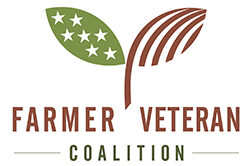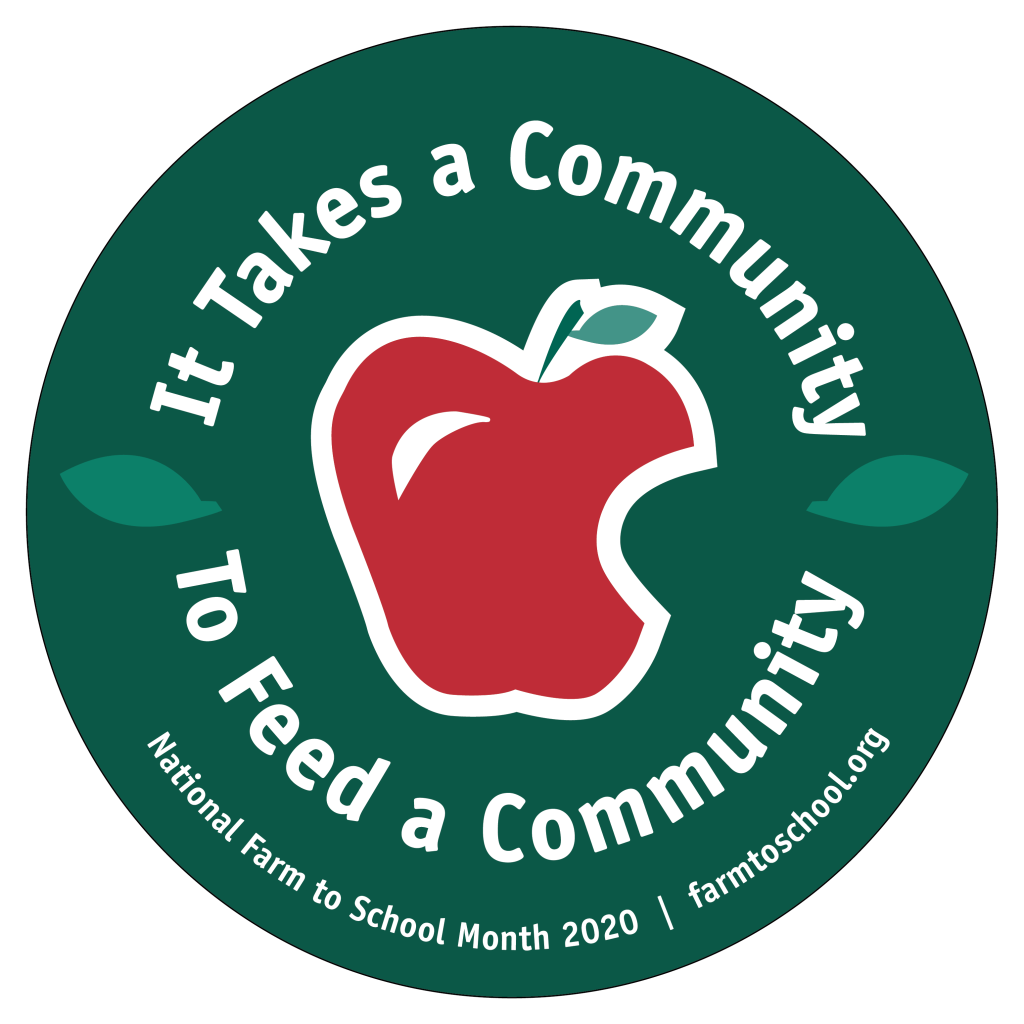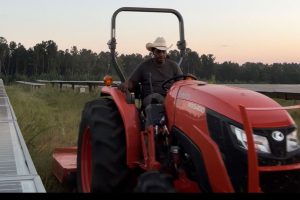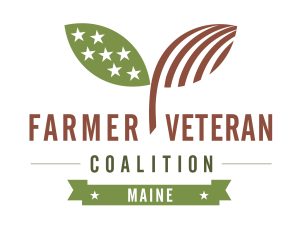Every October, schools and communities across the country celebrate National Farm to School Month, a nationwide effort to connect students with fresh, locally grown food while building stronger relationships between schools and the farmers who feed them. What began as a policy designation by Congress in 2010 has grown into a powerful movement – one that now reaches more than 67,000 schools and over 42 million students each year.
At its heart, Farm to School Month is much more than a food service initiative. It is about cultivating understanding, restoring connection, and reminding the next generation that food is not just a commodity, but the result of human hands, local soil, and community care. For members of the Farmer Veteran Coalition, many of whom farm under the Homegrown By Heroes label, this national effort aligns deeply with a continued commitment to service – this time carried out through agriculture, mentorship, and nourishment.
What Is Farm to School Month?
National Farm to School Month shines a spotlight on the broader Farm to School movement, which operates on three foundational pillars:
- Local Food Procurement: Schools purchase locally grown produce, meat, eggs, or dairy from nearby farmers. Unlike bulk commodity purchasing, many of these school transactions take place through micro-purchase thresholds, allowing schools to buy small quantities directly from local producers without navigating long bid processes – ideal for small and mid-sized farms.
- Food and Agriculture Education: Schools integrate agricultural awareness through garden programs, classroom lessons, cooking demonstrations, and interactions with farmers. These experiences help students understand where food comes from and who grows it.
- Hands-On Growing and School Gardens: Many schools maintain small gardens where students plant seeds, observe growth cycles, harvest produce, and learn stewardship of the land. These gardens create accessible entry points for farmers to support youth education in simple and meaningful ways.
The initiative is supported at the national level through the USDA Patrick Leahy Farm to School Program, which provides grants, resources, and technical support to help districts integrate local food into child nutrition programs. Over $1.8 billion is now spent annually by schools on local food through the Farm to School program, and much of that is through small seasonal purchases, not large contracts.
Why This Matters for Children and Communities
Farm to School Month exists because communities recognized a growing disconnect between young people and the source of their food. Many children today have never met a farmer, visited a farm, or seen food growing in the ground. By bringing locally grown foods into the cafeteria and introducing farmers into the classroom space – whether in person or through a simple poster or short video – schools create living lessons in health, economics, ecology, and citizenship.
Students who taste a local apple and learn it came from a farm down the road begin to connect food with place, with people, and with pride. When that farmer is also a U.S. military veteran farming under the Homegrown By Heroes label, the message becomes even more powerful. It tells children that service can take many forms – that feeding a community is also an act of leadership and care.
The Role of Small and Medium Farmers
Many FVC members operate on a small to medium scale and may assume that selling to schools requires high-volume production or complex logistics. However, Farm to School programs were designed with smaller producers in mind. USDA purchasing guidance allows schools to buy directly from local farmers under micro-purchase and small-purchase thresholds, meaning even a one-time delivery of apples, greens, squash, or eggs for a single tasting event is meaningful participation.
In many districts, food service directors are actively looking for small, reliable local sources – not just for regular supply, but for harvest showcases, taste tests, seasonal menu features, and classroom connection activities. These moments do not require large acreage or major distribution capability. They require presence, identity, and willingness to connect – qualities FVC members carry in abundance.
Farmer Veterans: A Natural Fit for Farm to School
The Farm to School movement is not only about food – it is about values, local leadership, and community identity. Farmer veterans bring a unique voice into this space. They understand service, resilience, and mission. They know what it means to commit to something larger than oneself. When a school features a Homegrown By Heroes farm on their menu, bulletin board, or classroom slide, students see a living example of service continuing through agriculture.
Veteran farmers can participate in ways that match their scale and comfort:
- Supplying one local item for a Harvest of the Month feature
- Sharing a two-minute video introducing their farm for students to watch in class
- Allowing the school to print a simple “Meet the Farmer” profile sheet
- Sending a message or photo to be shared during cafeteria announcements
- Becoming a guest voice for agricultural education days, Veterans Day programs, or school garden projects
These contributions are simple but significant. They allow students to attach a face, a name, and a story to the food they see on their tray. For many, it may be the first time they realize that farmers live within their own community – and that some of those farmers once wore the uniform of our nation.
From Field to Cafeteria to Classroom
In practice, the Farm to School connection often begins in the cafeteria with a locally sourced item appearing on the menu. For example, a school might purchase a small batch of apples from a nearby Homegrown By Heroes farm to feature in a fall tasting event. Because procurement thresholds allow for direct, low-volume purchases, this simple action can be carried out without formal bids or contracts.
Once the product is served, schools frequently look to enrich the experience with a learning component. This might include displaying a farm profile poster or showing a short video of the farmer explaining their operation. Veteran farmers, many of whom are already experienced in sharing their story, can easily participate by recording a brief message on their phone or by offering a few photos and a short farm biography.
In school gardens, teachers may invite farmers to speak about soil health, seasons, or the life cycle of a plant. Farmer veterans bring an added element of leadership and character education, modeling discipline, problem-solving, and stewardship – values consistent with both military service and agriculture.
National Resources That Support Participation
A range of national tools and programs support small producers interested in Farm to School engagement:
- USDA Patrick Leahy Farm to School Program: Provides the framework, funding support to schools, and producer outreach.
- USDA Farm to School Grant Program: Funds districts to expand garden programs, purchase equipment, and launch local sourcing initiatives.
- National Farm to School Network: Offers communication toolkits, graphics, templates, and engagement ideas for October and beyond.
- USDA Farm to School Census: A public database showing which districts in your region are already purchasing local food.
For producers specifically:
- USDA “Selling Local Food to Schools” Guide: A practical introduction to school procurement pathways, including micro-purchases and simplified small purchase thresholds.
- Micro-Purchase and Small Purchase Policy Summary: Designed so that small farms can sell without formal bids up to a capped dollar amount per transaction.
- Child Nutrition Office Directories: Lists of school nutrition buyers nationwide, allowing farmers to make introductions to local food service directors.
Service in a New Form
For many veterans, farming is more than a profession – it is a continuation of service, a way to feed and strengthen communities from the ground up. Farm to School Month offers a moment of national recognition not just for local food, but for the hands and hearts behind it.
When a child bites into a local apple, sees a farmer’s face on the cafeteria wall, or learns that the person who grew their food once served in the military, a spark of connection is made. In fields, gardens, and school lunchrooms across the country, it lives on in new and meaningful ways – rooted in soil, grounded in community, and growing toward the future.
Visit your local school this month!
Wishing you a safe and successful harvest and looking forward to seeing some of you in Waco!
About Farmer Veteran Coalition
Based in Waco, Texas, the National Farmer Veteran Coalition empowers Veterans to build meaningful careers in agriculture. FVC offers resources, training, and support to help them transition into farming or agricultural employment. Through education, mentorship, and partnerships, FVC creates economic opportunities, fosters sustainability, and enables Veterans to continue serving by strengthening American agriculture and their communities.
Established in 2009, some of FVC’s in-house programs include the Farmer Veteran Fellowship Fund small grant program, the nationally recognized Homegrown By Heroes label for Veteran-grown products, MarketMaker, Hives Training Program, Fields4Valor Food Security Program, and the national stakeholders conference. For more information, visit www.farmvetco.org or follow them on Facebook and Instagram at @FarmerVeteranCoalition and on YouTube at https://www.youtube.com/@farmvetcoalition/videos.






